The Prospects of Artificial Intelligence: Innovations by OpenAI and Google
In the rapidly evolving field of artificial intelligence (AI), OpenAI and Google are driving industry growth through their respective technological innovations.
Recently, OpenAI launched a new voice feature aimed at enhancing AI interaction, while Google released its latest Gemini models to strengthen its foothold in the AI market.
Let’s take a closer look at the latest developments from these two tech giants.
OpenAI's New Voice Feature: Elevating Interaction
OpenAI has introduced five new voice options for ChatGPT: Arbor, Maple, Sol, Spruce, and Vale. With these additions, ChatGPT now boasts a total of nine voice options (compared to Google’s Gemini Live, which offers ten).
These names, inspired by nature, range from "maple" to "breeze," creating a more natural experience for users.
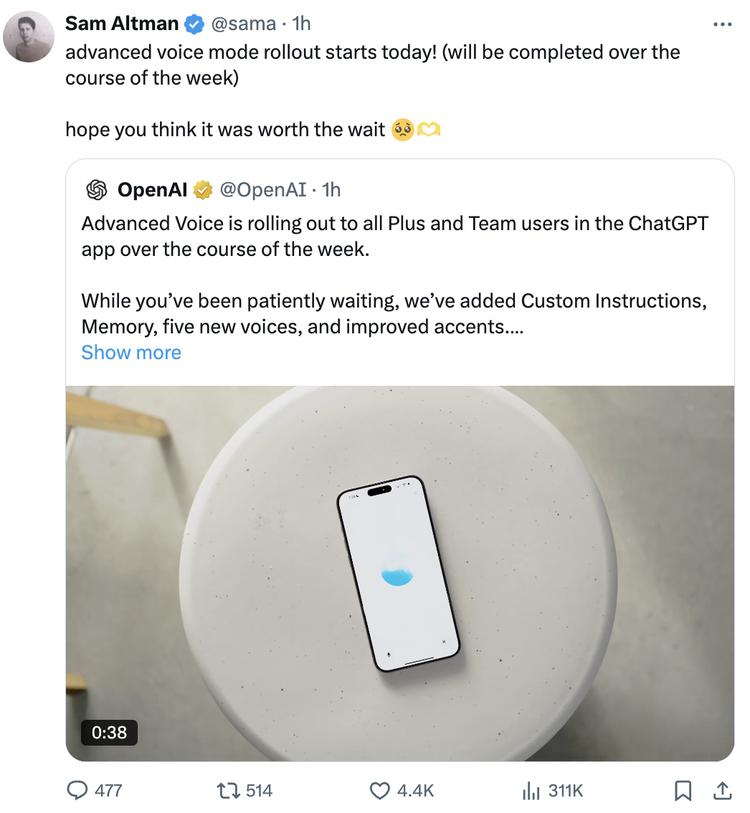

Moreover, OpenAI has enhanced the advanced voice mode of ChatGPT with custom instructions and memory functions. These upgrades significantly enrich the interactive experience, making it more personalized and engaging for users.
Google Gemini: Boosting Speed and Efficiency
Google's release of the Gemini-1.5-Pro-002 and Gemini-1.5-Flash-002 models is a game-changer for developers.
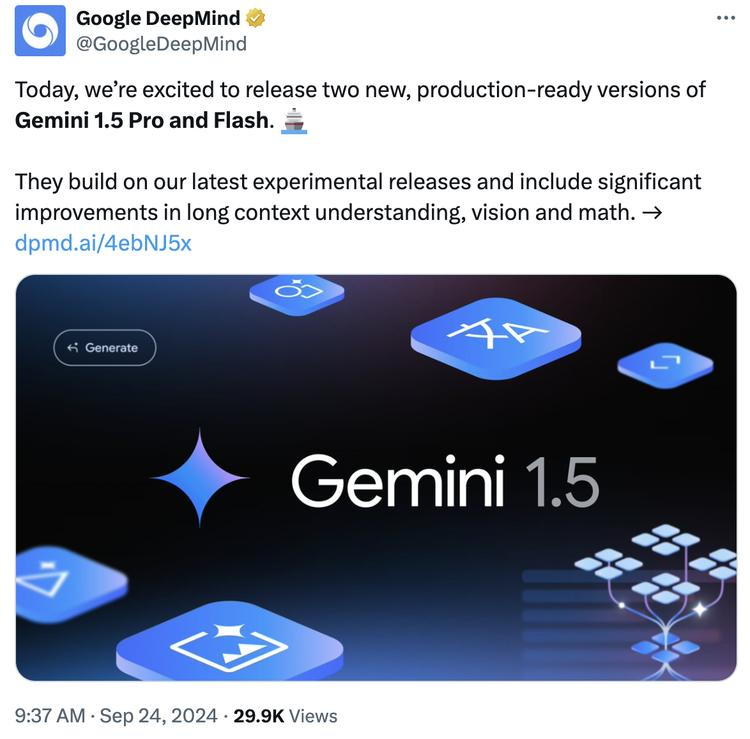

According to the Google Blog, these models represent significant enhancements across the board. Described as "production-level," these AI models are prepared for commercial deployment, capable of handling high volumes of user requests and applications.
Key Highlights of the Gemini Update:
1.Significant Price Reductions: Input and output prices for the 1.5 Pro have decreased by approximately 50%, dramatically lowering build costs, especially for prompts below 128K tokens.
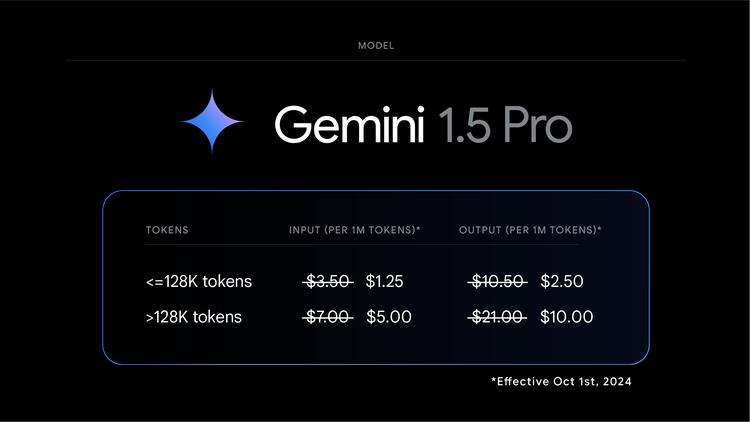

2.Overall Quality Improvements: Notable performance boosts have been observed in math, code generation, long text context, and visual tasks, with about a 20% increase in benchmark tests like MATH and HiddenMath, along with 2%-7% enhancements in visual and code applications.
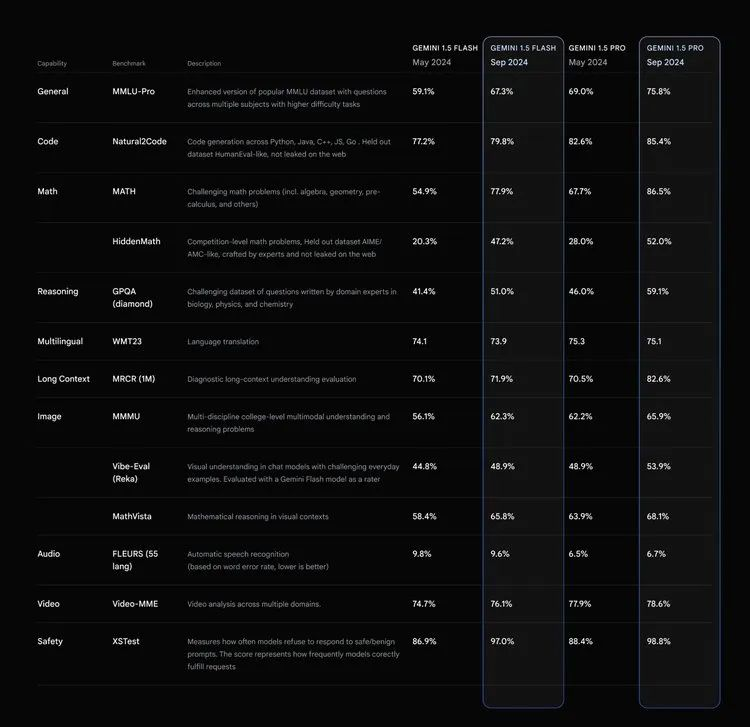

3.Increased Rate Limits: Developers can now enjoy increased rate limits, with 1.5 Flash and 1.5 Pro rates raised from 1000 RPM(Requests Per Minute)and 360 RPM to 2000 RPM and 1000 RPM, respectively.
4.Faster Output and Lower Latency: Output speeds have doubled, while latency has been reduced by threefold, enabling greater efficiency in application scenarios.
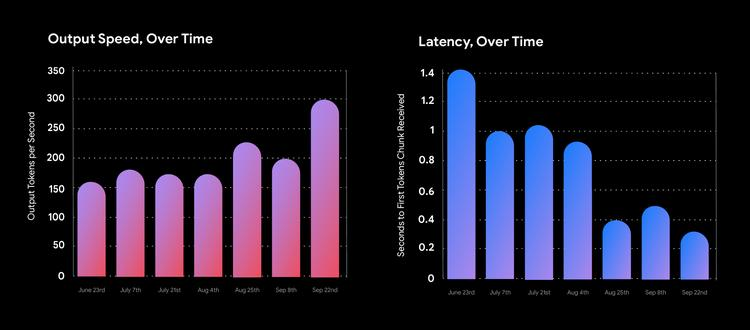

5.More Concise Responses: The response style is more streamlined, with output lengths reduced by 5%-20%, while still maintaining high usefulness and decreasing cases of refusal and avoidance.
6.Multimodal and Long Context Support: The new 2 million-token long context window for 1.5 Pro supports lengthy texts and multimodal tasks, such as generating content from a 1000-page PDF or long videos.
7.Updated Filtering Settings: The default safety filter is now customizable, giving developers the ability to tailor safety settings as needed.
Developers can access these models for free through Google AI Studio and the Gemini API, while larger organizations and Google Cloud clients can utilize the new models on Vertex AI.
Innovation and Collaboration: Paving the Way for the Future
Although OpenAI and Google follow different technological paths, both companies are committed to innovation that drives progress in artificial intelligence. The collaboration between these efforts reflects a broader trend in the industry: new technologies will increasingly integrate AI into everyday life.
One noteworthy example of collaborative innovation is XXAI, which combines the capabilities of top models like ChatGPT-4o and Claude-3.5, allowing users to seamlessly switch between them.This kind of flexibility enhances usability and signifies a shift towards a more diversified AI market.
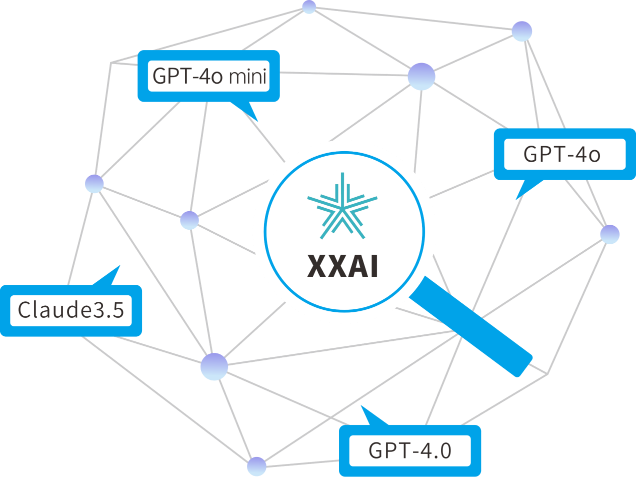
Conclusion
The ongoing efforts of OpenAI and Google in the realm of artificial intelligence showcase each company's dedication to technological innovation, continual improvements to user experience, and the enhancement of functionalities. Many developers continue to lead the way toward a smarter and more human-centric future for AI.
As Sam Altman aptly said, “Much of what we do today might seem trivial and a waste of time to people from hundreds of years ago, but no one looks back wishing to be a candle lighter. If a candle lighter could see today’s world, they would find the prosperity around them unimaginable.
As we eagerly anticipate further innovations, we hope that AI will evolve beyond a mere tool, becoming an indispensable intelligent partner in our lives.